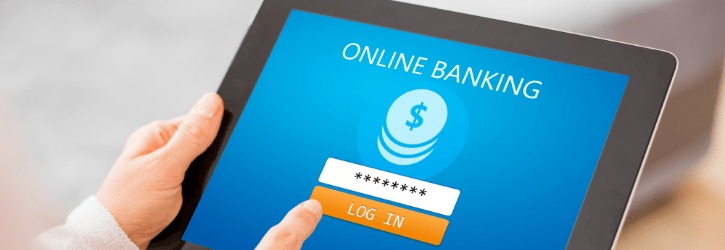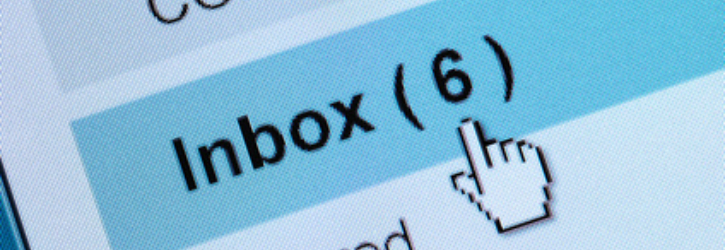
Welcome To The Data Leak Lawyers Blog
We focus on the latest news surrounding data breaches, leaks and hacks plus daily internet security articles.

We focus on the latest news surrounding data breaches, leaks and hacks plus daily internet security articles.

Scams and fraud from data breaches and data leaks are common. In fact, scams and fraud are common anyway, with more than 10,000 cases reported last year, which was a five percent rise on the previous year.
It can be so easy for people to fall victim to scams and fraud that stem from data breaches, so the big question is how people can protect themselves, and what the organisations who hold our money – and data – can do to protect us as well. The burden of responsibility is a two-way street, and there is plenty that banks and organisations can do to better protect us.
read more

There is a wealth of information already out there in the public domain about most people. From loads of information accessible by anyone on social media platforms, to the data we share with organisations who may then be passing it around (whether we’re aware or not), there is so much out there.
So, when we have a serious data protection breach like the Equifax hack, the risk for victims is massive. It’s not hard for scammers and fraudsters to be able to find more information online about the Equifax breach victims, meaning the risks are very hard to manage.
read more

According to information from a report by privacy advocates Big Brother Watch, despite assurances that local government authorities are taking data protection seriously, more than a quarter of UK councils have had systems breached in the last five years.
The report also found that the majority of the successful breaches were caused by the simple and well-known phishing method, pointing to staff as the “weakest link” in terms of cybersecurity and data defence.
The report also references the fact that three-quarters of councils reportedly do not provide mandatory cyber-security training, with 16% not providing any at all.
read more

We have helped and advised people in the past who were scammed out of thousands of pounds because they were called by fraudsters who were able to convince the victims they were calling from TalkTalk themselves.
The criminals likely gained their information from the TalkTalk cyber-hack and had enough details to be able to trick victims in to thinking they were the real deal, with names, addresses, numbers and even account info.
The fraudsters are still at it; with plenty of targets to choose from thanks to the huge TalkTalk data protection breach.
read more

You would’ve thought that Google would have their cyber-security under wraps, but it seems that following Yahoo’s cyber-attack back in 2014, no company is safe.
In this case, a phishing email was sent out to nearly 1 million Gmail users, and the email itself claimed to come from trustworthy contacts using Google Docs – a document sharing and editing service. The email notified users that a document had been shared with them and invited them to open it, and upon clicking on the “Open in Docs” button that was displayed, users were asked to give “Google Docs” permission to access their emails and manage their contacts.
read more

Following ‘Australia’s largest data breach‘ where 550,000 Red Cross blood donors’ information was reportedly hacked, victims have found themselves to be at a potential risk of further hacking as criminals are reportedly attempting to steal patients’ details through a recent phishing scam.
These sorts of follow-up attacks are not uncommon – when people are at their most vulnerable after a cyber attack, it can be common for other hackers or criminals to jump on the situation to try and use the hack for further gains.
read more

A mother in Houston, Texas, was unaware that the private webcam in her two eight year old daughter’s room, that was intended to keep an eye on the girls, had been hacked.
Live footage of the two girls was being streamed online for anyone to view.
The live stream had been online for thousands to view since July. It was only when another mother came across the feed and created a Facebook group for Houston mothers with screen shots of the girl’s bedroom online in order to find the mother.
read more

Phishing emails – every single day millions of them are received as scammers and cyber criminals try their damndest to hack our computers and take our money…
The trend right now is ransomware which is malicious software (malware) that can end up locking you out of your own computer until you pay a fee. Or, as is the case in a topic we’re blogging about today, you’re told that you OWE money to a company and have to pay them or face legal action.
Most phishing emails are so obvious that it’s hard to fall for them nowadays, but a few slip through that are quite convincing – like the ones where they show your OWN postal address in the text of the email.
read more

Sometimes the hackers only need very limited information to be able to scam you out of thousands and thousands of pounds. You sometimes see when companies get hacked or leak information that one of the immediate defences they raise is to assure people that financial information hasn’t been released.
But sometimes just a name, telephone number, and account number is all they actually need…
read more

Thankfully Team Snapchat have advised that this was an isolated incident that was swiftly resolved – and perhaps there will be a huge sigh of relief shared across the globe when we tell you that it was not information about Snapchat users that was breached…
According to social media heavyweights Snapchat, an employee fell for a phishing scam that ended up in payroll information for employees being leaked last month. The email purported to come from the company’s Chief Executive Officer, and it requested payroll information for a number of employees.
read more
EasyJet admits data of nine million hacked
British Airways data breach: How to claim up to £6,000 compensation
Are you owed £5,000 for the Virgin Media data breach?
Virgin Media faces £4.5 BILLION in compensation payouts
BA customers given final deadline to claim compensation for data breach
Shoppers slam Morrisons after loyalty points stolen
Half a million customers can sue BA over huge data breach
Lawyers accuse BA of 'swerving responsibility' for data breach
The biggest data breaches of 2020
Fill out our quick call back form below and we'll contact you when you're ready to talk to us.